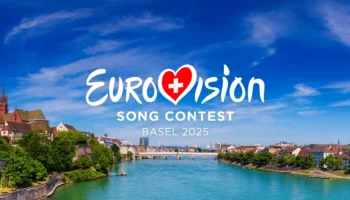A year much different from all the others… A year which confronts us with an unprecedented health crisis, which has greatly affected the normalcy of our social life. The coronavirus pandemic resulted in the cancellation of our favorite contest for the first time in its history. But something like this, will not happen to the Junior Eurovision Song Contest too.
Despite a long series of postponements and cancellations of social events, the 18th edition of the junior competition was decided not to have the same fate. The Junior Eurovision Song Contest 2020 will take place amidst the COVID-19 crisis next November in Warsaw, Poland. However, changes that obey the indicated security measures and restrictions will not be avoided.
Last Tuesday, the EBU announced the format of the upcoming “reimagined” event, which is not going to see all young participants on the same stage this year. Each of the 13 participating countries will perform their competing entry on home ground, with the children singing in studios of similar dimensions and standards.
Eyes on Rotterdam: Is the EBU introducing the Eurovision 2021 format?
Opinions on the applicability and the adequacy of these new practices that are characterized by physical distance between people have been controversial. On the one hand and according to the scientists’ suggestions, social distancing is currently the strongest weapon against the virus’ spread. On the other hand, this new norm may run counter to the core values of our favorite competition, which aims to bring together contestants, musicians, professionals and friends from all over Europe and the world to celebrate the biggest music event on this planet.
It was in mid-June when the EBU started sharing its intentions to make Eurovision 2021 (and maybe not only) an event of flexibility. The most resounding change is that the participating countries will not be required to send backing vocalists as part of their delegations, as pre-recorded vocals will also be an option for all contestants.
Undoubtedly, the evolution of the ongoing pandemic in Europe and the world in the coming months is completely uncertain and no one can yet predict how the next Eurovision, which is scheduled to be hosted by the Dutch broadcasters AVROTROS/NOS/NPO next May in Rotterdam. Several countries have already confirmed their participation and have revealed their intentions to re-select their 2020 artists once again or not.
Much will be judged by the release and effectiveness of a vaccine against COVID-19 disease and plenty of time is required. Until then, it is certain that all the scenarios are still on the table. Is the new proposed format an “experiment” by the EBU for an alternative way of staging the senior event?
Under the slogan Open Up, the 65th Eurovision Song Contest is expected to take place on 18, 20 and 22 May in Rotterdam, The Netherlands.




